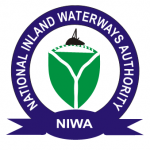“We have not done our duties rightly. We are going to look at the projects one after the other; we are going to review the entire industry. Aviation industry should not go into extinction because Nigeria has no money. Nigeria has spent five times of what the neighbouring African countries spent on navigational aids at their airports. Navigational aids work at those airports; why are the ones at our airports not working? We have something peculiar here and we have to address it. We are in trouble”.
These were the words of Senator Bala Ibn Na’Allah, the deputy chairman of the senate committee on aviation when he led members of the committee to embark on oversight of the aviation agencies earlier in the week.
Ibn Na’Allah bluntly declared that the visit was the first of its kind in the sense that the visit was specifically to review the sector and find out what was responsible for the poor performance of the various stakeholders including the Federal Airports Authority of Nigeria (FAAN), the Nigerian Civil Aviation Authority (NCAA), the Nigerian Airspace Management Agency (NAMA), the Accident Investigation Bureau (AIB), airlines, aviation fuel marketers and other relevant agencies within the sector.
“This visit is unlike any other in the past; we intend to honestly look at where the industry is especially as there are no funds to carry out some high-end projects due to the economic challenges in the country.
“We have appropriated money; implementation has begun already and what we are looking for are the successes and shortfalls. We must accept that the industry is in trouble and we are all involved, we are not here to indict anybody but we are reviewing the entire industry and projects line by line to see where we are, reduce certain or not continue with them so as to bring the industry back on course.”
Obviously, the committee was right to say the sector was in a critical state in view of myriad of challenges tearing it apart.
Top on the endless list of the challenges include: undue politicization, unnecessary interference by the government officials and friends of the governments, hostile government policies and unfriendly business environment, corruption and disregard to the aviation rules guiding implementation of policies.
While the committee should be commended for taking the initiative at this critical period when things seem to be at a standstill, it is expected that the committee will carry out a thorough assessment of the sector vis a vis the role played by all the relevant key players for the purpose of identifying the loopholes which created the lapses.
In doing this, there is the need to further make those managing the various agencies more accountable to happenings within their domains.
Government through the managements of the agencies should put their feet on ground when it comes to providing services and getting paid for such services by those enjoying them particularly the airlines.
The committee according to its promise should critically look into the expensive cost of aviation fuel which has been attributed to the illegal dealings by the ‘almighty’ oil marketers who operate as a cartel.
There is an urgent need for the committee to clip the wing of this cartel which is greatly contributing to the pains of the airlines while those who could not withstand the illegal activities of the marketers particularly the foreign airlines have been forced to shift their patronage to neighbouring countries.
Another area the committee needs to also look into is the role played by the politicians including the National Assembly members who have turned the sector to a piece of national cake where they feel they can extend their political gimmicks to.
It is no longer news that many of the lawmakers in the past governments and even now have used their private companies to corner contracts which they failed to carry out as specified even after they had been paid. Those who managed to complete their contracts ended up doing a bad job.
At the end of the day, it is those Chief Executives upon whose shoulders such projects fall that are being crucified for this.
There is no need for the committee to continue to wonder why things that work out in even Ghana very close don’t work out in Nigeria. The simple fact is that things are done strictly in the national interest unlike here where ordinary local government councillor can call for the sack of a Chief Executive in the sector if he fails to bend the rules for him.
Above all, in its attempt to bring the sector back on course, while the relevant aviation key players should be made to be more answerable in their callings, government should adequately contribute its own quota while the political class including the lawmakers should be told where their privileges and limitations begin and end. Aviation is global devoid of any local politics.
Under this present predicament, everyone even the lawmakers cannot be exonerated from the accumulated rot.
WATCH TOP VIDEOS FROM NIGERIAN TRIBUNE TV
- Relationship Hangout: Public vs Private Proposals – Which Truly Wins in Love?
- “No” Is a Complete Sentence: Why You Should Stop Feeling Guilty
- Relationship Hangout: Friendship Talk 2025 – How to Be a Good Friend & Big Questions on Friendship
- Police Overpower Armed Robbers in Ibadan After Fierce Struggle






